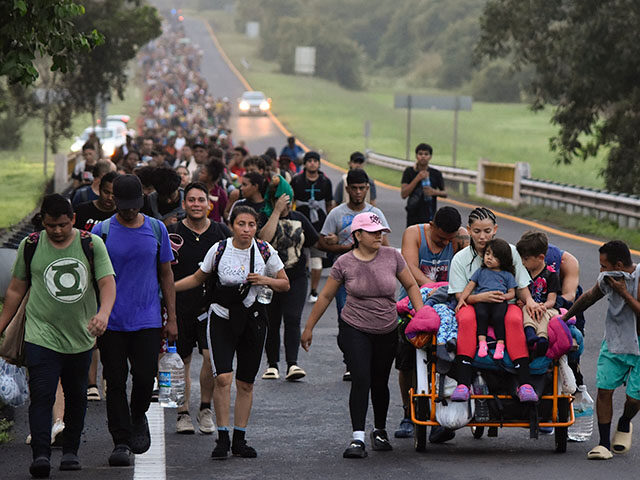Most Kansas voters say mass migration has had a negative impact on the state, a recent poll revealed, even as the business community clamors for more migrants to fill low-wage jobs.
The poll by Midwest Newsroom and Emerson College Polling found that 47 percent feel Joe Biden and Kamala Harris’s mass migration has been a net negative for the state. Meanwhile, only 26 percent said it has been good for Kansas, according to High Plains Public Radio (HPPR).
The poll found a major split between Democrats and Republicans with 70 percent of GOP voters saying mass migration has had a negative impact on the state while 60 percent of Democrats say it has been a good thing.
In its report, HPPR spoke to one migrant who was discouraged that so many felt immigration has a negative impact on Kansas.
“I feel like immigrants in our state have helped the economy,” immigrant Fabian Rosales told the radio network.
Still, Rosales admitted he is voting for Donald Trump, and added, “When Trump was president, I had more cash in my pocket.”
Rosales also admitted that he supports more deportation of criminals and thinks Trump will help the economy in Kansas.
Alejandro Rangel-Lopez, who represents migrant activist group New Frontiers, was also discouraged with the survey and insisted that it shows many do not understand how vital migrants are to businesses in the state.
“That highlights the lack of awareness of how much immigrants contribute to the economy in Kansas,” Rangel-Lopez told the radio network.
HPPR added that migrants make up 61 percent of low-paying manufacturing jobs in Kansas, especially in the meat-packing industry.
A recent congressional report found that Biden’s tidal wave of illegal aliens will force down Americans’ wages over the next ten years.
The February report from the Congressional Budget Office “estimates that [Biden’s] increase in population will put downward pressure on average real wages.” It adds that “average real wages are expected to be slightly lower by 2034 than they would be otherwise.”
The official report reinforces the vast evidence that migration shifts family wages and workplace investment toward Wall Street, real estate, coastal states, and government, while also diverting politicians’ focus away from American communities.
The survey was conducted among 1,000 registered voters each in the states of Iowa, Kansas, Missouri. and Nebraska between September 26 and October 2. The poll has a margin of error of plus or minus 3 percent and a 95 percent confidence level.
Follow Warner Todd Huston on Facebook at: facebook.com/Warner.Todd.Huston, or Truth Social @WarnerToddHuston

COMMENTS
Please let us know if you're having issues with commenting.